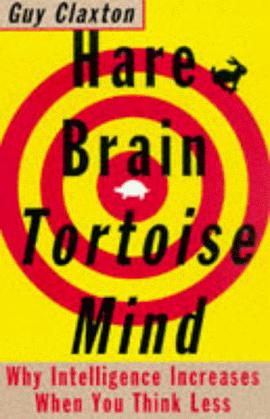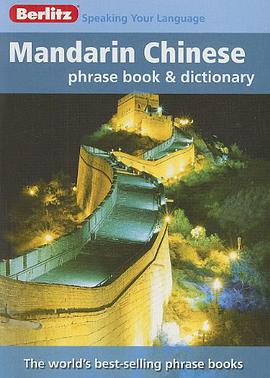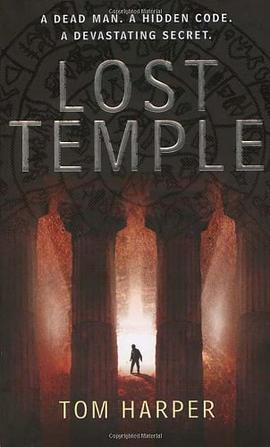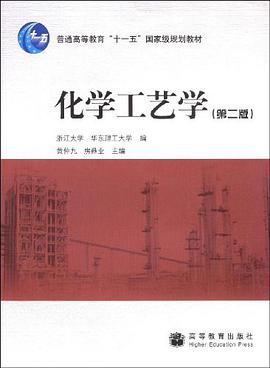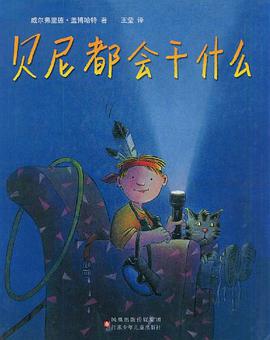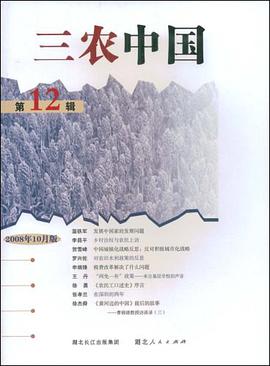

具体描述
THE ART OF WAR
VERY LITTLE IS POSITIVELY KNOWN ABOUT SUN TZU.
The only ancient Chinese biography was written some four centuries after he lived; there Sun Tzu is described as belonging to the Chinese aristocracy that no longer owned much land, so he became a mercenary. The only fixed date we have for him is 512 B.C., when he was purportedly hired by a king of Wu, one of China’s then warring states, to serve as a general; allegedly, he was so successful that Wu conquered the powerful state of Chu, at which point Sun Tzu seems to vanish from history. But he is credited with having composed his military treatise even before 512 B.C. - a work titled Bing Fa , which might be literally translated as ¡°military methods¡± or ¡°army procedures¡± but which has come to be known as The Art of War.
作者简介
Sun Tzu, also known as Sun Wu or Sunzi, was an ancient Chinese military strategist believed to be the author of the acclaimed military text, The Art of War. Details about Sun Tzu s background and life are uncertain, although he is believed to have lived c. 544-496 BCE. Through The Art of War, Sun Tzu s theories and strategies have influenced military leaders and campaigns throughout time, including the samurai of ancient and early-modern Japan, and more recently Ho Chi Minh of the Viet Cong and American generals Norman Swarzkopf, Jr. and Colin Powell during the Persian Gulf War in the 1990s.
John S. Bowman, the author of the preface, majored in English literature at Harvard University and did his graduate studies at Trinity College at the University of Cambridge and the University of Munich. After some years in New York publishing, starting with Story Magazine, he has been an independent editor and author, involved in a wide spectrum of publishing projects. His many edited volumes include The Cambridge Dictionary of American Biography and the Columbia Chronicles of Asian History and Culture. His own works include The Quest for Atlantis, Diamond.c in the Rough, and Shaker Style.
目录信息
读后感
“曾星智100本推荐书目”第2本、《孙子兵法》,孙子,军事/兵法/孙子/兵家/先秦子学/军事理论。 笔记/曾星智,一个跨学科思想的专业投资者,公众号:ztouzi 《执行孙子绝对优势的投资战略》 ——曾星智《孙子兵法》读书笔记和投资思索 孙武的《孙子兵法》不仅仅是一部...
评分当我在从事技术行业的时候,我看孙子兵法,它是一本指导战争的理论书; 当我从事销售的时候,我看孙子兵法,它是一本传授销售思想的书; 当我了解项目管理以后,我看孙子兵法,它是一本提供项目管理指导的书; 当我经历了更多的人更多的事情以后,我看孙子兵法,它是一本教你怎么做好各个...
评分看过《百战经典》后。决定看看《孙子兵法》,很佩服这些先祖们,通过自己的智慧和经验,总结了这些将来战场上,常常出现的对战方法,以及对战心理。我最欣赏其中的‘谋攻篇’。 21世纪了么,人与人之间,胜负的关键,便是生活阅历的累积,以及孙子兵法中对经验教训的总结
评分常言道:“人在江湖,身不由己。”一旦踏上工作岗位,绝巧弃利,不争之德便成了虚幻的理想,我们急需孙子兵法来武装自己,不求雄霸天下,只求不为人欺。 首先,我们必须审度三个方面的情况:一是法规,二是潮流,三是人际。法规包括国家的各项律条和单位的规章制度。“...
评分读完之后可以偶尔拿出来装逼的书,有些军事道理可以运用于日常的工作生活中。比如商业,美帝的特劳特老头子就拿了另一本兵书《战争论》与现实的商业竞争做了比较,写了本书叫做《商战》。读完一遍《孙子兵法》,还是感觉作者的古朴的军事思想,很多问题的看法停留在经验主义的...
用户评价
我向几位从事市场竞争的朋友推荐过这本书,得到的反馈都非常相似:它颠覆了我们对“竞争”的理解。我们总以为竞争就是你死我活的正面冲突,但作者却花了大量的篇幅来强调如何避免冲突,如何通过布局让对手自己走进死胡同。这种“不战而胜”的哲学,在如今这个信息爆炸、资源稀缺的时代,显得尤为珍贵。我特别喜欢书中关于“奇正变化”的论述,它完美地平衡了常规操作和非常规手段。你不能永远墨守成规,但也不能永远出奇制胜,关键在于掌握那个转换的节奏和时机。这种辩证法的应用,让我看待任何事物都多了一层反思:当前的主流做法是否已经成为一种可以被利用的“正”?我的“奇”应该在何时显现?这种深度的思辨过程,比任何一个具体的“成功案例分析”都要有价值得多,因为它给予的不是答案,而是提问的能力。
评分这书读起来,与其说是阅读,不如说是在进行一次对自我局限性的深度挖掘。我尝试将书中的某些理念应用到日常的工作汇报中,效果简直令人惊叹。它教会我,信息的传递并非一次性的行为,而是一场持续的心理建设。那些关于“虚实”的论述,放在现代信息战中,简直是教科书级别的范本。如何制造有效的迷雾,如何让对手低估你的真实实力,又如何在关键时刻展现出雷霆万钧的执行力,这些都被描绘得淋漓尽致。我特别关注了作者关于“地形”的论述,它让我想起办公室政治中的“环境因素”——你的位置、你的支持者、你的信息渠道,这些无形的“地势”决定了你出击的效率和成功率。这本书的厉害之处在于,它将所有看似宏大的战争概念,拆解成了无数个可以被个体应用的微小决策点。我不再是盲目地追求“效率至上”,而是开始注重“时机与位置”的完美契合。这种对细节的苛求和对整体环境的审视,让我的决策质量得到了质的飞跃,仿佛有了一副能看穿迷雾的护目镜。
评分老实讲,一开始我有点抗拒这种“老古董”的文字风格,总觉得它会很枯燥,但一旦沉浸进去,那种穿越时空的震撼感是其他现代管理书籍无法比拟的。它没有现代商业术语那种浮夸的外衣,而是用最朴素、最直接的语言,直击人性的弱点和优势。最让我印象深刻的是关于“间谍”的章节,看似是讲情报收集,实则探讨的是信任的边界和信息不对称的价值。我从中领悟到,在任何合作关系中,保持信息的主动权是多么重要。我开始反思自己过去那些过于透明的沟通方式,它们在某种程度上暴露了我的底牌。这本书提供的不是一套公式,而是一套可以无限延展的思维框架。它像一个磨刀石,把我们被日常琐事磨钝的直觉重新锋利起来。读完后,我发现自己对“耐心”的定义都变了,它不再是无所事事地等待,而是一种主动地、策略性地布局,等待万事俱备只欠东风的那个临界点。
评分这部作品,我得说,简直是一部关于人际交往的“圣经”。初读时,我以为它会是那种晦涩难懂的理论堆砌,但很快我就被作者那如同手术刀般精准的洞察力所折服。它没有直接告诉你“该怎么做”,而是让你在字里行间去体会那些潜藏的权力动态和心理博弈。你看那描述策略部署的段落,哪里仅仅是军事上的排兵布阵?分明是企业谈判桌上的进退取舍,是家庭矛盾中的情感拉锯。我尤其欣赏作者那种不动声色的智慧,他从不鼓吹蛮力,反而将“不战而屈人之兵”的境界描绘得如诗如画。读完之后,我感觉自己对周围那些微妙的试探和隐藏的意图,变得异常敏感。以前觉得生活中处处是随机事件,现在看来,每一步似乎都有其背后的逻辑和设计。它强迫你去思考,你的每一步行动,在别人眼中构成了怎样的一幅画面,你又该如何去引导这种解读。这种对全局观的培养,远超出了任何单一领域的教科书所能给予的范畴,它是一种思维方式的重塑,让人在面对复杂局面时,能保持一种近乎冷酷的清醒。
评分这部书的语言结构有一种独特的韵律感,每一次重读,都能从中品味出新的层次感,就像在品尝一坛陈年的老酒,岁月的沉淀让其味道更加醇厚。它最令人敬畏的地方在于其对“不可预测性”的处理。作者并不否认混乱的存在,但他提供了一套应对混乱的哲学体系——即在看似无序中寻找秩序,在信息不足时建立基于概率的判断。我从中学习到的“势”的运用,极大地改变了我处理危机公关的方式。不再是手忙脚乱地去弥补一个破口,而是着眼于宏观力量的引导,让局势自然地向有利于自己的方向发展。我感觉自己仿佛站在一座高塔之上,能够俯瞰山谷中的所有行动,而那些在谷底奔波的人,还沉浸在战术的细节中无法自拔。这种“跳脱出来看问题”的能力,是这本书带给我最宝贵的财富,它提升了我的心智高度,让我能够以更少的精力,获得更佳的战略效果。
评分 评分 评分 评分 评分相关图书
本站所有内容均为互联网搜索引擎提供的公开搜索信息,本站不存储任何数据与内容,任何内容与数据均与本站无关,如有需要请联系相关搜索引擎包括但不限于百度,google,bing,sogou 等
© 2026 book.quotespace.org All Rights Reserved. 小美书屋 版权所有

